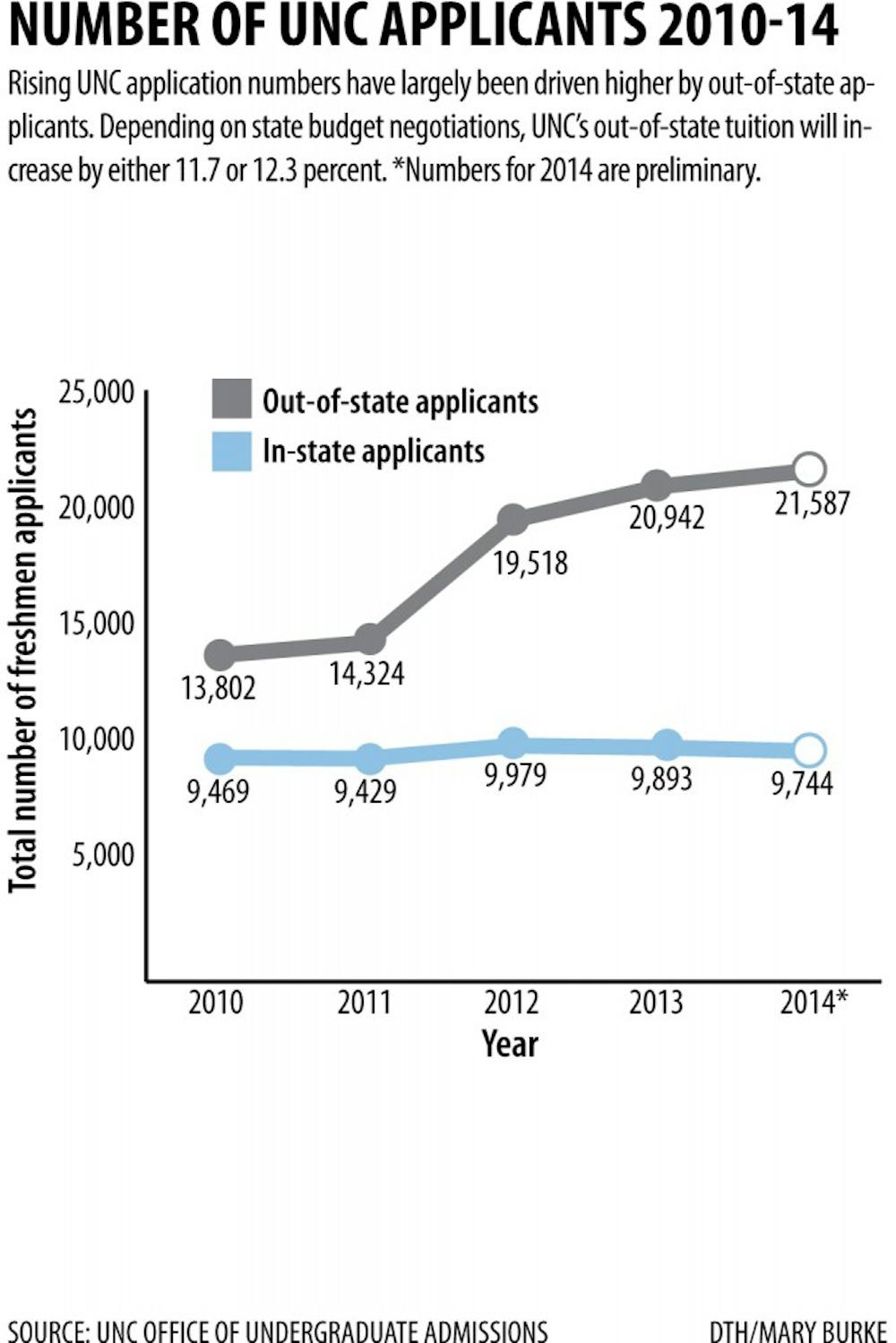Proposals about K-12 education, such as what teachers will be paid and how many teachers can be hired, have been particularly divergent during this year’s budget deliberations, Schofield said.
He said he thinks the failure to reach a budget compromise by July 1, while not a tremendous failure on the Republicans’ part, indicates an ideological divide within the party.
Tom Carsey, a UNC-CH political science professor, said in an email budget stalemates under one-party control are not uncommon, and N.C. Republicans have limited experience governing with unified control of the governor’s office and legislature.
“Governors have to respond to the state overall, whereas legislators have to pay particular attention to their districts,” he said in the email. “Now, the challenge is to find common ground within the various factions within the GOP to govern.”
Election year
Kokai said he thinks the upcoming November elections have factored into budget deliberations — but to what extent, he isn’t sure.
“I think if you see the stalemate continue much past the Fourth of July, then the electoral factor will become a much bigger deal,” he said. “Thom Tillis will not want to be sticking around in Raleigh, and other legislators who face some competition in the fall will feel the same way.”
Many legislators are running unopposed in this year’s elections, but those who aren’t will want to return home to campaign, Kokai said.
Tillis, a Republican and the current N.C. Speaker of the House of Representatives, is running for U.S. Senate against Democratic incumbent Kay Hagan.
“He needs to get out of town,” Schofield said. “The Senate knows that. They can just hold things up and hope that he’ll concede to their point of view.”
UNC system implications
Charles Perusse, UNC-system chief operating officer, said legislators finalizing the budget after the new fiscal year has few effects on the system’s operations.
To get the day's news and headlines in your inbox each morning, sign up for our email newsletters.
“From our standpoint, we’re really operating business as usual,” he said.
“We don’t spend a lot of our appropriations in July so from that standpoint, the timing helps us.”
The system is hopeful the final budget will grant it flexibility in adjusting out-of-state tuition rates originally mandated by the legislature last year, Perusse said.
If the system receives such flexibility, the out-of-state tuition increase at UNC-CH would be 11.7 percent instead of 12.3 percent, a difference of $169 dollars.
Perusse said most system schools bill students for fall semester in mid to late July, but if legislative action results in changing tuition rates, schools can send additional bills in the fall or reduce the spring semester’s bill.
Stephen Farmer, UNC-CH vice provost for enrollment and undergraduate admissions, said system schools have initiated their own tuition increases for most of the past decade.
“It would really surprise me to see our proposing anything approaching the increase that was imposed this year,” Farmer said.
He said last winter, UNC-CH submitted its own tuition proposal based on competing universities’ tuition rates, including a 2.5 percent out-of-state tuition increase of about $700.
The University struggled, but succeeded, in funding financial aid to keep up with a 12.3 percent out-of-state tuition increase, he said.
“We believe both in accessibility and excellence.”
Contact the desk editor at state@dailytarheel.com.




